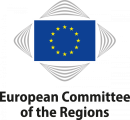Partners
As policy makers at all levels of government and organizations, we are, along with networks of both large and small cities and communities, believe that close cooperation through multi - level governance in the EU and co-creation with citizens are essential to our mission to transform our cities and communities into smart and sustainable places where people like to live and work. We strive for a cohesive and digital Europe, in which every community.
Eurocities is the network of largest European cities, counting over 200 large cities among its membership, representing more than 150 million people across 38 countries, from within and outside the European Union.
Eurocities' mission is to build places where people can enjoy a good quality of life in a healthy, green environment. Where low-carbon and smart solutions make for cleaner air and better public services.
Eurocities is where local governments meet, exchange ideas, and work together to bring positive change. Day in, day out, our member cities address global issues at the local level, from climate change to integration to the digital transition, among many others. They work on advocacy and projects, while their membership offers extensive networking opportunities, activities, events, training, and campaigns.
Eurocities is the lead partner in the Governance of the Living-in.EU (Go Li.EU) project which provides the secretariat running the Living-in.EU movement.
LinkedIn: https://www.linkedin.com/company/eurocities
Twitter: https://twitter.com/eurocities
Instagram: https://www.instagram.com/eurocities.eu
ERRIN, The European Regions Research and Innovation Network is a well-known Brussels-based platform that gathers around 120 regional organisations from more than 20 European countries. ERRIN supports members to enhance their regional and local research and innovation capacities and further develop their R&I ecosystems. In addition to thematic Working Groups which pick up the topic of digitalisation in cities and regions, ERRIN also has a dedicated cross-cutting ICT WG. Its aim is to provide a platform offering information about important European initiatives, strategies and funding programmes related to ICT topics and their regional dimension. Led by representatives of several European regions and cities, the Working Group aims to engage its members in making the most out of digital transformation. This is done among other things by showcasing relevant opportunities, inspiring practices and solutions of public interest during organised events, encouraging benchmarking. A bottom-up approach which can be found at the core of the WG, allows it to focus on issues of most relevance to members and benefit from links with European projects developed by ERRIN, such as DT4REGIONS.
The Council of European Municipalities and Regions (CEMR) is the largest and broadest organisation of local and regional government in Europe. Its members consist of 60 national associations of towns, municipalities and regions from 41 of the 47 Council of Europe member countries, including the 27 member states of the European Union (EU). CEMR organises and coordinates thematic meetings, expert group meetings, workshops, seminars and conferences to promote the exchange and dissemination of knowledge and experience at the local and regional level, offer the possibility to EU institutions to present their priorities and achievements and support the formulation of common positions on issues of concern to local and regional authorities.
Open and Agile Smart Cities & Communities (OASC) is a global network of cities and communities that assists local administrations of all sizes in their digital transformation. OASC works with its members, partners and independent experts to create sustainable impact for communities via their digital tools and systems. The network focuses on interoperability, or how to combine datasets from different sources. This facilitates the seamless sharing and re-use of digital, data-driven solutions and helps to avoid vendor lock-in, to reduce costs and resources and improve efficiency. This is done via open standards (Minimal Interoperability Mechanisms) and APIs (application programming interfaces).
THE EUROPEAN NETWORK OF LIVING LABS (ENOLL) is the international federation of benchmarked Living Labs in Europe and worldwide. Founded in November 2006 under the auspices of the Finnish European Presidency, the network has grown in ‘waves’ up to this day. LLs operate as intermediaries among citizens, research organisations, companied, cities and regions for joint value co-creation, rapid prototyping or validation to scale up innovation and businesses. LLs have common elements but multiple different implementations.
THE EUROPEAN COMMISSION helps to shape the EU’s overall strategy, proposes new EU laws and policies, monitors their implementation and manages the EU budget. It also plays a significant role in supporting international development and delivering aid.
THE EUROPEAN COMMITTEE OF THE REGIONS (COR) is the voice of regions and cities in the European Union (EU). It represents local and regional authorities across the European Union and advises on new laws that have an impact on regions and cities (70% of all EU legislation).














